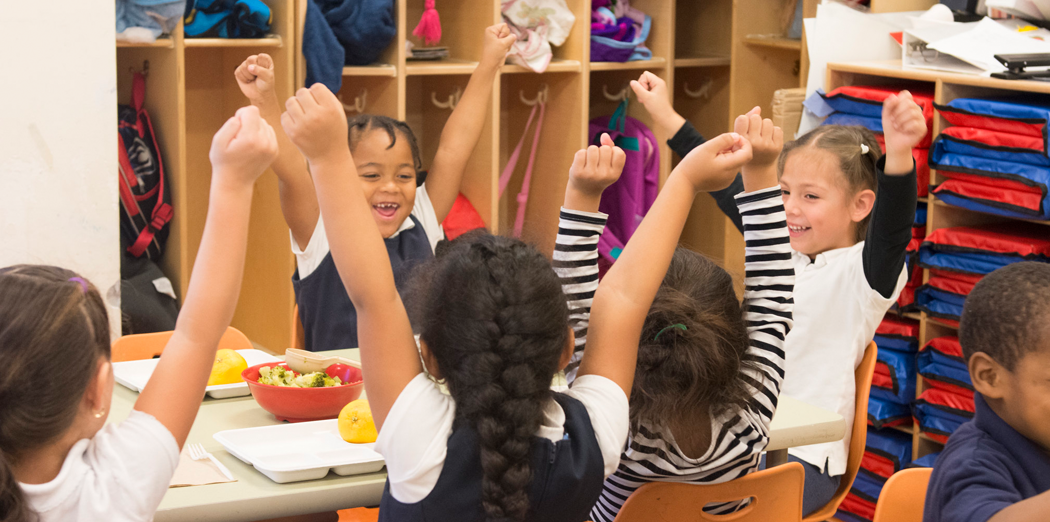Restorative Practices Part of DCPS Becoming
Over the past decade, DCPS has been recognized as the fastest improving district in the country compared to expected academic growth. At the same time, DCPS still has significant disparities in opportunities and outcomes, particularly for students of color. We know these disparities are not the result of innate differences, but because our systems and practices are not creating as favorable conditions for learning as possible. With the aim of unlocking our fullest potential, we are embarking on a collective journey, known as DCPS Becoming, guided by the latest insights from the science of learning and development. This transformative vision revolves around every district employee nurturing the whole child and fostering an antiracist ethos within our educational framework.
To do this, we are:
- Embedding whole child/antiracists practices in DCPS systems (IMPACT, Curriculum & Instruction, Policy, Professional Learning)
- Codifying school level practices that create supportive learning environments and developmental relationships, in order to build a strong sense of belonging and academic engagement
- Building staff capacity to embed WC/AR practices in their work
In 2022-23, DCPS leveraged the best research and evidence from the science of learning and development and thought partnership from early adopter schools to codify the five DCPS Becoming Core Practices:
- Student Relationship Structures
- Trust-Building Interactions
- Expectations, Norms, and Routines
- Co-Regulatory and Restorative Practices
- Interventions and Enrichments
The focus of this guide is to learn more about Co- Restorative Practices and the ways that DCPS uses these practices to build positive school cultures.
Origins of Restorative Practices
Inspired by indigenous values, the idea of restorative justice is a philosophy and a theory of justice that emphasizes bringing together all those who may have been affected by wrongdoing to address needs and responsibilities and to heal the harm to the relationship as much as possible.
Restorative Justice is the reactive approach that consists of formal or informal responses to crime and other wrongdoing after it occurs. Restorative Practices includes the use of formal and informal processes that precedes wrongdoing but also proactively builds relationships and a sense of community to prevent conflict and wrongdoing.
What are Restorative Practices?
Restorative Practices are theories of reconciliation with an umbrella of strategies that DCPS is utilizing to build community, manage conflict, and resolve tensions by repairing the harm caused by individual(s) toward another and restoring the relationships.
The DCPS approach to restorative practices will be used proactively to build relationships and positive school cultures. In addition, Restorative practices will be used responsively to engage in conflict resolution.
Why Restorative Practices?
Restorative practices are aligned to the DCPS Social Emotional Academic Development (SEAD) framework, which is the intentional approach that integrate social-emotional learning (SEL) opportunities and experiences into the academic day. Restorative practices can improve school and classroom climates by focusing on inclusiveness, relationship building and problem-solving skills through circle engagement and conflict resolution.
Through restorative practices, members of the school community can:
- Have an opportunity to be heard
- Understand the greater impact of one's action
- Learn to take responsibility
- Repair the harm one's actions may have caused
- Recognize one's role in maintaining a safe school environment
- Build upon and expand on personal relationships in the school community
- Recognize one's role as a positive contributing member of the school community
Restorative practices support school safety and procedures within the school community by decreasing conflict, de-escalating volatile situations, and promoting a sense of collective responsibility. If restorative practices are implemented consistently, they can also decrease the frequency of disruptions and disciplinary issues that can occur during the school year. Restorative practices should serve as an alternative to harmful exclusionary practices such as suspension and expulsion.
Resources
For more information on Restorative Practices and how it is being implemented in DCPS please refer to the DCPS Restorative Practices Implementation Guide.
For ideas on how you can incorporate restorative practices with your family please see videos from DCPS Parent University linked below.
Address general questions and inquiries to: [email protected]
Director
Shelley Anderson, Director, Supportive Learning Environments
[email protected]
Elementary School Support Team
Heather Kurtz, Elementary Becoming Manager
[email protected]
Jamie Little, Restorative Practices Specialist for Clusters 2,3
[email protected]
Danielle Butler-Neale, Restorative Practices Specialist for Clusters 1, 4-6
[email protected]
Secondary School Support Team
Bode Aking, Becoming Manager for Cluster 7
[email protected]
Anise Walker, Restorative Practices Specialist for Cluster 7
[email protected]
Dr. Justin McClain, Becoming Manager for Cluster 8
[email protected]
Dexter Korto, Restorative Practices Specialist for Cluster 8
[email protected]
Karen Lee, Becoming Manager for Cluster 9
[email protected]
James Taylor, Restorative Practices Specialist for Cluster 9
[email protected]



